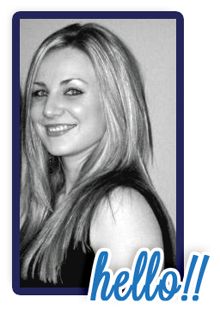For this week’s blog task as I have not received responses
from the professionals within the field to whom I reached out to, I therefore researched
the UNESCO website.
First a little bit about UNESCO and what they do…
UNESCO is an organization that advocates for Early Childhood
Care and Education programs and centers that attend to health, nutrition,
security and learning that cater to a child’s holistic development. It organized
the first early childhood conference in 2010 and from then on has formulated
partnerships with stakeholders worldwide in order to ensure that all children
are able to develop their potential to the fullest.
In exploring the website I found an article that
particularly spoke to me because it has been an issue within the field and a recent
movement that is very important to me. Under the website’s news links I found
an article entitled “International Day of the Girl Child 2013”. In reading I
found out that in 2011, the United Nations General Assembly declared October 11,
The International Day of the Girl Child.
The day has been named and dedicated to girls in order to recognize a girl’s
right to education, equity and to pause and recognize the unique challenges and
strife that many girls still face in many countries around the world. The
article explains that although, in the last decade, there has been a lot of progress
with regards to this situation, there is still a great many issues that need to
be addressed and eliminated.
The website outlines many of the issues with inequity that
girls face and how they relate to the denial of education. UNESCO states:
- 31 million girls of primary school age are out of school. Of these 17 million are expected never to enter school. There are 4 million fewer boys than girls out of school.
- Three countries have over a million girls not in school: In Nigeria there are almost five and a half million, Pakistan, over three million, and in Ethiopia, over one million girls out of school.
- There are also 34 million female adolescents out of school, missing out on the chance to learn vital skills for work and life.
To me these statistics were not at all surprising but they
were still extremely sad and infuriating. The article concludes in stating: “Finally,
girls who do not complete an education are more likely to join the ranks of the
illiterate women that represent two-thirds of the 774 million illiterate people
in the world” (UNESCO, 2014).
After looking at the UNESCO website and finding this article
discussing girls’ rights for equity and education I decided to also look into a
source I have used before but haven’t looked at recently. Plan’s website “Because
I am a Girl” is an organization that is a global initiative to end gender
inequality, promote girls’ rights and lift millions of girls out of poverty. As
I hadn't visited the website in a while I decided to look at the stories section
to read about anything new associated with this issue surrounding the subject
of equity in the early childhood field. A story I looked at is called “Fleeing
South Sudan – The story of two sisters”. The article discusses the civil war,
the way in which many adolescent girls have taken on the role of mother to
their younger siblings and community. The article also discusses current
situations that they are facing in refugee camps that are jeopardizing their safety
and the safety of other young girls and children. Another article I researched
is “5 issues affecting the world’s girls in 2014, and beyond”. The article
explains that barriers to girls’ education, gender-based violence, child
marriage, maternal, newborn and child health and emergencies and disasters are
the five major issues that are affecting female children around the world
today.
As I was looking into the issue of gender equity in the
early childhood field this week I also looked at the Malala Fund website in
order to learn more about what they do to advocate for change and for the
education of girls across the globe. A few
months ago I saw a youtube video of Malala Yousafzai on the Jon Stewart show
and I was amazed by the grace and wisdom of such a young girl. Here is the link
if you are interested https://www.youtube.com/watch?v=gjGL6YY6oMs.
The website states that there are 600 million adolescent girls in the
developing world however, around the world many girls are denied a formal
education because of social, economic, legal and political factors.
“I think of it often and imagine the scene clearly. Even if
they come to kill me, I will tell them what they are trying to do is wrong,
that education is our basic right.” – Malala Yousafzai
References:
UNESCO. (2014).
Retrieved from http://www.unesco.org/new/en/education/resources/in-focus-articles/International-Day-Girl-Child/
Plan-Because I’m a Girl. (2014). Retrieved from http://becauseiamagirl.ca/girl-stories
The Malala Fund (2014). Retrieved from http://malalafund.org/








0 comments:
Post a Comment